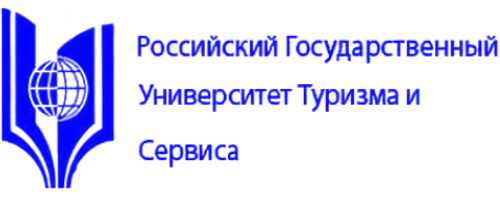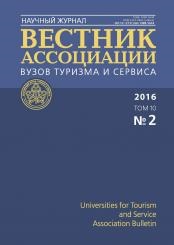Moscow, Russian Federation
The article is devoted to questions of improvement of professional competencies in the sphere of tourism industry. The authors aimed to identify the most problematic areas of optimal interpersonal interaction in the training of future specialists in the sphere of services and to identify possible solutions of found problems. Special attention is paid to social-psychological aspects of training future professionals in this area. This article proposes an integrated approach to working with students (future travel businesspersons) and describes a specific model of intercultural competence, the structural components which serve the purpose of training, contents of training (theoretical and practical aspects) as well as methodological solutions to ensure maximum efficiency of the proposed model. The authors insist on the observance of the harmony in the allocation of attention to information and thematic and practical areas of the formation of intercultural linguistic competence. The first of them contributes to the formation of the main landmarks in communication with native speakers for organized intercultural understanding of the world. The second area of work is directed on creation of effective and appropriate verbal behavior of speakers and it involves the practical application of acquired knowledge in various situations of business communication. Personal experience with students-bachelors, studying the direction of tourism and service, allows us to give recommendations regarding the optimal methodological decisions in the process of formation of intercultural competence. As an example, there is a role-playing game as a way to achieve this level of intercultural communication in which cultural mismatch can be overcome through the intersection of cognitive, affective, and behavioral levels of communication.
professionalism of staff, travel industry, intercultural communication, integrated model, role-playing game
1. Bagramyants N.L., Ivleva M.L. Problemy i perspektivy sovremennogo professional´nogo obrazovaniya kak di- namichnoy sistemy. Izvestiya MGTU «MAMI». T. 1. 2012. № 1. S. 340-345.
2. Desherieva Yu.Yu. Pragmatika mezhkul´turnoy kommunikatsii: presuppozitsiya v mezhkul´turnom diskurse. Voprosy filologii. 2000. № 3. S. 29-38.
3. Ivlev V.Yu., Ivleva M.L., Inozemtsev V.A., Udovik V.E. Informatsionnoe obshchestvo i formirovanie novoy epistemologicheskoy paradigmy sovremennoy nauki. M., 2013.
4. Kleshchina A.V. Ambivalentost´ ponyatiya «kul´tura» v sovremennykh amerikanskikh mezhkul´turnykh issledovaniyakh. Izvestiya Ural´skogo gosuniversiteta. 2006. № 47. S. 68-77.
5. Prokhorov Yu.E., Sternin I.A. Russkie. Kommunikativnoe povedenie. M., 2007.
6. Turunen N. Russkoe i finskoe kommunikativnoe povedenie. Voronezh: Izd-vo VGTU, 2000. S. 25-37.





